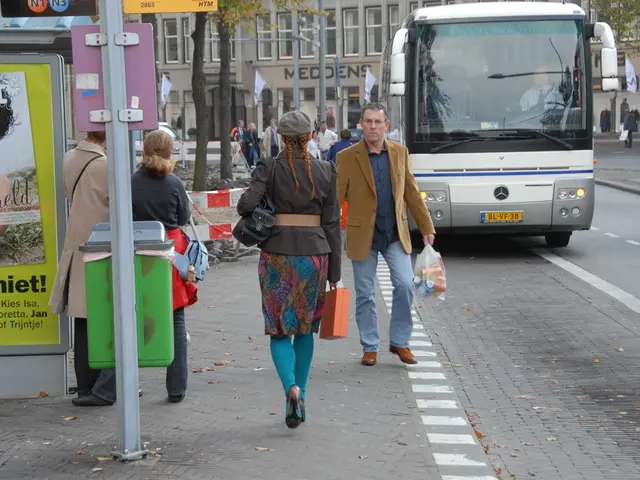Strike action by therapists continues since Easter, as explained by them.
Since Easter, therapists at the Helios Clinic Berlin-Buch have been on strike, exacerbating the already strained staffing situation and potentially jeopardizing patient care. According to labor union Verdi, approximately two-thirds of the striking therapists are present daily, with protests held outside the clinic's headquarters on Friedrichstraße.
The therapists are demanding pay parity with coworkers at the Helios Clinic in Zehlendorf, as they were transferred to a subsidiary, Helios Therapy East (HTO), in 2013, earning 800 to 1,500 euros less than their Zehlendorf counterparts. As a result, the number of therapists in Buch has reduced from the original 84 to 54, with many leaving in recent years. The remaining staff are overwhelmed, leading to half considering leaving themselves.
Therapists at the clinic work with patients recovering from severe accidents, strokes, amputations, and various other conditions requiring physical, occupational, and speech therapy. They also assist critical care patients in preventing bone stiffness through movement.
Under normal circumstances, therapists are already understaffed, and the ongoing strike further diminishes the availability of prescribed treatments for patients. Helios has remained tight-lipped on the situation, stating only that collective bargaining is ongoing and they are exploring possibilities for binding the collective agreement.
Jenny Preuß, a physiotherapist, expresses her dissatisfaction with the staffing situation, stating that she often takes on new patients while struggling to follow up on others' progress. Roxana Adermann, an ergotherapist, is striking for improved working and pay conditions, citing her struggle to make ends meet with a salary of approximately €3,100 gross. Manuel Breuer, an art therapist, works with psychologically distressed children and terminally ill patients, but feels undercompensated for the psychological stress associated with his work.
Without a resolution to the labor dispute, therapists may seek employment elsewhere, leaving the clinic without crucial staff members. The situation underscores the essential role therapists play in restoring patients' quality of life and the need for fair compensation and staffing levels.
- The ongoing strike by therapists at Helios Clinic Berlin-Buch, a critical workplace-wellness institution, has intensified, potentially impacting patient care and exacerbating the existing staffing shortage.
- Short-staffed due to the strike, therapists are managing demanding workloads, including patients recovering from severe accidents, neurological disorders, and chronic diseases.
- As the strike continues, therapists are calling for policy-and-legislation changes to attain pay parity with their counterparts at the Helios Clinic in Zehlendorf, citing medical-conditions such as financial stress as reasons for their discontent.
- General-news outlets have reported on the therapists' demands, shedding light on the politics surrounding healthcare workers' compensation and workplace wellness.
- With many therapists considering leaving due to overwhelming workloads and low pay, crime-and-justice could potentially arise if the situation worsens, as vital health-and-wellness professionals may choose to seek employment elsewhere.
- Addressing these concerns through therapies-and-treatments for mental health and legislation supporting fair compensation and staffing levels will ensure that patients receive the care they need and that therapists can continue their essential work in restoring patients' quality of life.







